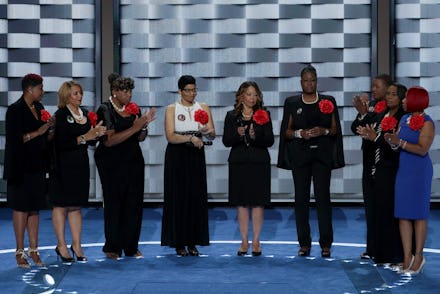Mothers of the Movement share what they'd rather be doing with their loved ones

What do you call a mother whose child has been brutally and irrevocably snatched away from her? Usually, we call her an "advocate." And that's what Sybrina Fulton describes in her new book, Rest in Power: The Enduring Life of Trayvon Martin, a biography of her slain son, which was released on Tuesday.
An "advocate" is the modern characterization you can give a woman like Mamie Till, who in 1955 insisted that her 14-year-old son, Emmett, be buried in an open casket. Emmett had been lynched by two white men in Mississippi and, as the world had clocked to the Till's hometown of Chicago to see the fruits of Southern racism up close, Till urged that world to look even closer.
"I wanted the world to see what they did to my baby," she famously said, as tens of thousands of people filed by the boy's casket and peered inside at his mutilated face.
That moment changed the course of American history. No longer were white Americans able to deny the existence of a brutal system of racism that, at its core, denied black people the right to live.
We're in the middle of another one of those moments. Police and vigilante violence have long terrorized black communities, but now it's being caught on camera. The mothers of the victims have been dubbed — by supporters and, notably, Hillary Clinton's presidential campaign — the "Mothers of the Movement," and they've appeared on stages, at town halls and in the streets demanding change. The movement for black lives stands on their shoulders, and their words have provided devastating proof that America isn't all that different from the society that called for change in 1955.
But it's an unforgiving battle, one that no mother wants to wage. Instead of advocating for the worth of their children's lives, these women would rather be mothering the children they brought into this world. Here, in their own words, several loved ones explain how they'd prefer to spend their time.